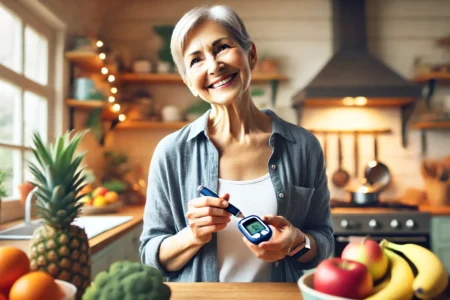Last week, we talked about how women experience changes in their lives. The struggles that Middle-Aged women go through during their growth are an untouched topic. There are various stages of change in a growing woman. The biggest transition occurs in the Middle-Age phase. Middle age is often referred to as a bridge between youth and old age. A stage where 2 personalities coincide, bodies transform and the mind is on high alert about the newly coming transformations. For women, this period is typically defined as the years between 40 and 60. Imagine being a mother who has spent all her life looking out for the family and is now feeling isolated as the children have grown up and have to work as it is their time to strive. In this case, these feeling of isolation is heightened by menopause and other factors. In this blog, we will be discussing all such issues that these strong women experience in middle age in detail so we can help understand them better and empathize with their feelings. Emotions all over the place with Menopause Menopause typically occurs after the age of 40. In simple words, menopause is a process where the ovaries stop producing eggs. Due to this biological halt, hormone levels decrease. As hormones are responsible for regulating emotions in our bodies, their sudden decrease results in emotional distress, mood swings, weight gain, and sleep disturbances. On top of this biological outburst, many women go through a transition in life. Middle age coincides with children leaving home for college or careers. While this is a natural phenomenon, women can feel lost and purposeless. After years of comforting, nurturing, teaching, and scolding a child becomes capable of taking an independent step toward their own life and when the child is finally ready a mother may naturally feel lost without the child. This phenomenon is termed “empty nest syndrome” This sudden change in their daily routine leads to a feeling of loneliness which is never really addressed. Naturally obliged to be selfless the middle-aged woman does not think of it as important of an issue to be addressed. But we should know and notice this and lend an ear sometimes. Middle Age is a stage where women often question their own life choices if they have lived up to their potential. Balancing the roles of mother, partner, professional, and individual can create a sense of overwhelm. As a woman feels torn between fulfilling societal expectations and pursuing personal dreams. Always looking out for others, the woman forgets of her aspirations. The Physical Transformation. Physical changes that Middle-Aged women experience are inevitable and distressing, especially in a society that considers the perfect face, skin color, and hourglass body shape as a beauty standard. Menopause brings with it a host of physical symptoms including hot flashes, night sweats, fatigue, and joint pain. These symptoms disrupt their daily routine paired up with the societal pressure of “keeping it together”. No matter what goes inside the body, women are expected to be calm and composed and undertake their routine professional or household tasks smoothly. This is an unseen pressure from societal standards where issues like menopause have not been discussed enough. Many individuals fail to even know about it. Biologically, aging women experience weight gain due to gradual metabolism, hormonal changes, and a decrease in physical activity. This affects their self-esteem, especially in a culture that glorifies slum, youthful figures. With age women face an increased risk of health issue such as osteoporosis, heart disease and breast cancer. Regular health check-ups and preventive care become crucial, but many women neglect their own health due to caregiving responsibilities or financial constraints. Professional Challenges Middle-aged women in the workforce encounter unique challenges. Women in their 40s and 50s often find themselves overlooked for promotions as companies prioritize younger talent under the guise of “fresh ideas.” Their years of experience and wisdom are undervalued and their contributions remain overshadowed by stereotypes that portray middle-aged women as being addicted to technology. For women who took a career break to raise children, re-entering the workplace becomes an uphill battle. The gap in their resumes is often viewed as a liability and they face challenges coping with the evolving job market. Many middle-aged women juggle professional responsibilities with caregiving roles, whether for aging parents or depending on children. Their switch from a strong and bold employee or leader to a gentle caring daughter or mother is commendable. But these switches cause a mental and Physical toll which often leads to burnout. Social Isolation and Loneliness As a woman ages, she loses friends and he social circle shrinks due to various reasons like busy schedules, geographic relocations, or differing life stages. This leads to feelings of isolation and loneliness which is exacerbated by societal invisibility that Middle-Aged women experience. In the Modern world which is obsessed with youth, Middle-aged women often feel ignored. Advertisements, media, and popular culture rarely represent women in this age group, reinforcing that their best years are already behind them. In some cases, age brings strain in marital relationships as couples face midlife crises, empty nests, or financial pressures. Divorce rates are high among middle-aged couples, leaving many women to navigate this phase of life alone. Financial Problems Financial challenges are a significant concern for middle-aged women, particularly for those who took a break from work to focus on families, many women enter middle age with insufficient retirement funds due to career break or lower-paying jobs. This creates anxiety sense of fear about their future. Eventually, this anxiety becomes a full-grown fear of being a burden to their family. Women who rely on their spouses for financial support face vulnerability. This is prevalent in cases of divorce or the death of a partner. Without personal savings or financial literacy, they may struggle to secure their independence. Cultural and Societal Shackles. Cultural norms and societal expectations add another layer of complexity to the lives of middle-aged women. Society expects women
Puberty brings about unique and new changes, it serves as a significant transformation that marks the end of one chapter of life and the beginning of another, for girls it is a struggle and an exciting thing to experience as it is more of a transition from being a girl to becoming a woman. It’s a period of growth emotional, mental, and even physical. Imagine us having a heart-to-heart conversation because that’s exactly what this article aims to be a guiding light, a comforting hand, and a voice saying, “You’re not alone.” What Is Puberty, and Why Does It Happen? First things first: what is puberty? puberty is how the body prepares itself for adult life. Puberty is the part of the transition where one starts to have an increase in hormones, for example, estrogen, which comes through the body and can feel like an avalanche most of the time. It’s nature’s way of molding and shaping you into an astonishing person. But yes, it can be confusing, and that’s okay. The Physical Changes: A New Chapter for Your Body One of the first signs of puberty in girls is growth spurts, especially among young girls, so it wouldn’t surprise you if you woke up one day feeling significantly taller! Your body will also reshape into the classic adult body, where the hip area will broaden. It’s just your body’s way of adjusting to its new role. And then there’s your period. Ah, the big one. It comes with being a woman – your reproductive system is ready to function. While it can be scary at first “What am I supposed to do with these pads and tampons?”—trust me, it becomes second nature before you know it. Emotional Changes: Riding the Rollercoaster If puberty feels like a wild rollercoaster, it’s because it kind of is. Your hormones are surging, and that can make emotions feel more intense. One moment, you’re on top of the world, and the next, you’re feeling sad for no specific reason. This mood fluctuation is perfectly okay. It’s fine to cry, it’s fine to laugh and it is fine to feel everything in between that because it is part of getting older. You may also crave a fuller sense of independence and try to form your own identity. It is natural to feel the desire for some space to understand yourself better and your core values. Just remember to communicate with your loved ones. They’re learning how to adapt to the new you too. How to Cope with These Changes Navigating Friendships and Social Dynamics Along with growth, puberty affects friendships and social groups as well. You might outgrow certain friends or feel the urge to fit in. Remember, true friends, accept you for who you are. Don’t be afraid to set boundaries or walk away from negative influences. Surround yourself with people who uplift and inspire you. The Importance of Positive Role Models Having someone to look up to can make all the difference. Whether it’s a family member, teacher, or public figure, a positive role model can guide you through the ups and downs of puberty. They’ve been through it, and they survived. So will you. You’re Stronger Than You Think Puberty is a journey, not a race. There will be days when it feels like too much, and that’s when you need to remind yourself: this is temporary. Every challenge you face is shaping you into a stronger, wiser, and more compassionate person. You are becoming you. So take a deep breath and give yourself grace. Celebrate the small victories — surviving a tough day or figuring out how to use a new type of period product. You’ve got this. And remember, you’re not alone on this journey. Millions of girls have walked this path before you, and millions more will after you. You are part of an incredible sisterhood. Welcome to the club. For your daily dose of emotional support keep reading Foramz.com
Each morning, rejuvenating your health becomes quite straightforward knowing that all the decisions you make will help you achieve that. For people in their old age, simply getting informed that they have diabetes can be a major shift in the journey they are traveling. But what if this challenge is also an opportunity? Diabetes is not just a medical condition; it’s a new way of understanding and nurturing your body. It’s natural to feel a wave of emotions fear, frustration, determination, and even gratitude as you adapt to this new reality. But here’s something crucial: every move you make towards dealing with your diabetes is a courageous and self-loving step. It is entirely in your hands how you want your journey to pan out, The type of decisions you make while being healthy can help determine that as well. A Soft Beginning: Understanding the Emotional Side of Diabetes Let’s face it: hearing the words, “You have diabetes”. You are probably recalling this very moment. It may have caused a flood of questions, like “What does this imply for my future? What alterations should I expect in my life? Can I still enjoy the things I love?” And those questions might have been accompanied by emotions that felt just as powerful. And those questions might have been accompanied by emotions that felt just as powerful. You might have felt a pang of fear for the future, a wave of frustration about the changes you’ll need to make, or even a sense of sadness for the ease of life before diabetes. Reflections on Care: a New Approach to Compassion Self-care entails positive reinforcement, especially for senior citizens who have been diagnosed with diabetes. But self-care isn’t just about deprivation or strict adherence to rules, it’s about honoring your body and mind with compassion and consistency. Take a moment and think about the things you have done so far in your life. You have been through the good and the terrible although being blessed with an array of experiences. Managing diabetes is another opportunity to show the strength you’ve gained over the years. You are not looking for flawlessness instead tiny bites are more than enough. Every single step you take whether it’s choosing to learn to check your blood sugar levels, a healthier meal, or going for a gentle walk is a victory worth celebrating. The Emotional Shifts Many senior citizens initially feel a sense of loss when diagnosed with diabetes. It’s okay for them to shed a few tears when they first discover that they are diabetic, as grief can be an essential phase of acceptance. Normal activities that one once enjoyed, such as eating candy at a family function or being lazy and not wishing to go for a walk in the rain, have been lost alongside their condition. But is it necessary for any of these to feel like a loss? Looking Ahead A chronic disease such as diabetes shouldn’t be thought of as a label, it is only a fraction of your entire life. In the next part, we’ll look into the common challenges seniors face while managing diabetes and how to overcome them with practical solutions and support. But for now, take a deep breath and know this: you’re capable, you’re strong, and this is just the beginning of a healthier, happier chapter.



